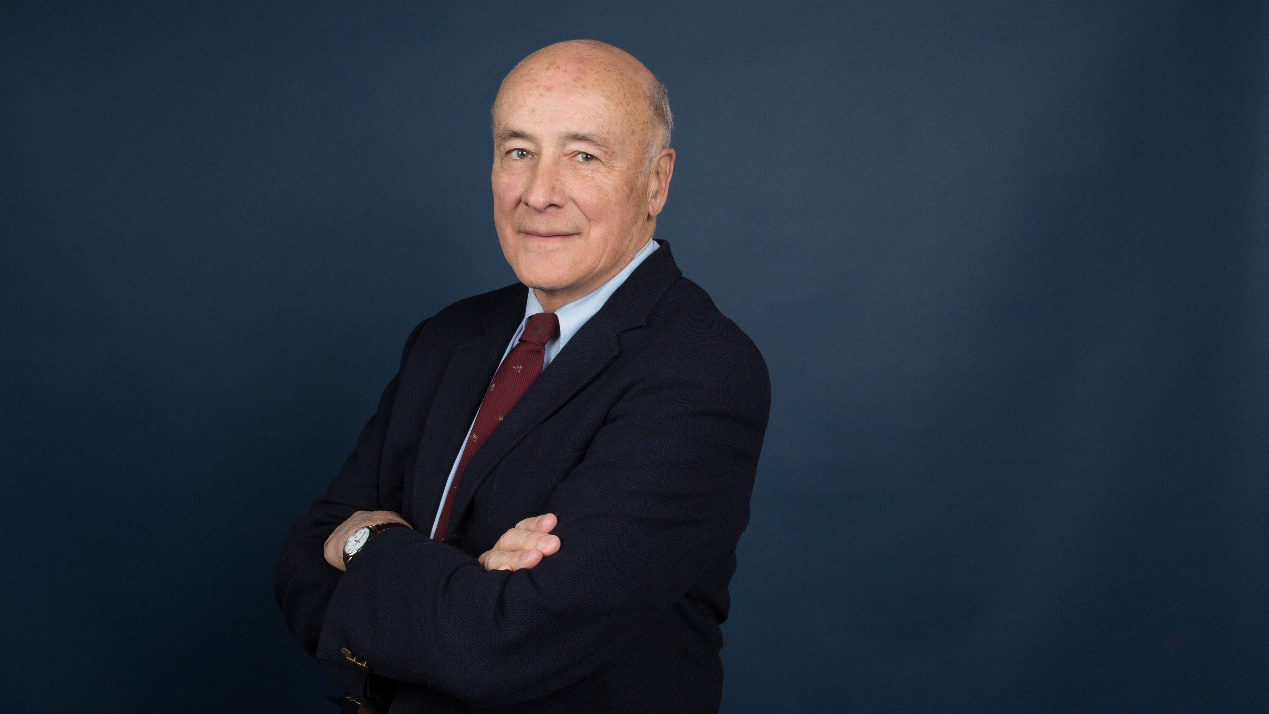US Secretary of State Antony Blinken visited China from June 18 to 19. Shortly after, Chair of the Board of Directors of the National Committee on United States-China Relations (NCUSCR) Jacob J. Lew, Vice Chair Evan G. Greenberg, and President Stephen A. Orlins also came to Beijing, and US Treasury Secretary Janet Yellen visited China from July 6 to 9.
“China-US trade is ecologically interdependent. China and the United States do not pose an existential threat to each other,” and if the US deals with the bilateral relations along the thinking of zero-sum game, it will not only lead to the failure of solving its own problems, but also lead China-US relations to conflict and confrontation, said Joseph Nye.

Joseph Nye
Joseph Nye coined the term “soft power” and has served in the US as Assistant Secretary of Defense for International Security Affairs, Chair of the National Intelligence Council, and Deputy Under Secretary of State for Security Assistance, Science and Technology. He, now 86 years old, is a well-known scholar and is a Harvard University Distinguished Service Professor, Emeritus as well as the former Dean of the Harvard’s Kennedy School of Government.
“China-US relationscontain both competition and cooperation”
“I sometimes refer to the relationship between the two countries as a Competitive Rivalry.” Nye noted that if China and the US want to prosper and develop, both competition and cooperation are needed.
During his visit to China, Blinken said that US President Biden believes the US and China have an obligation to responsibly manage their relations, which is in the interest of the US, China and the world. Nye also mentioned, “We need to work together on management, but management requires communication, and Blinken’s visit is a useful step in that direction.”
People are the foundation of the China-US relations. During Blinken’s visit, both sides agreed to encourage more people-to-people and educational exchanges, and had positive discussions on increasing passenger flights between the two countries. Both China and the US welcome more mutual visits by students, scholars and business people, and agreed to provide support and facilitation to this end.
Nye believes that although high-level interactions are very important, the role of people-to-people contacts in deepening understanding between the two nations should not be overlooked. “Scientific exchanges, business interactions, and studying abroad are all good examples.”
“China-US trade is interdependent”
In September 2022, Nye published an article pointing out that international relations theory and historical analogies, such as the Thucydides Trap and the New Cold War, have profoundly influenced US policymakers’ perceptions of China-US relations.
“The Thucydides trap overstates the risk of war, and the Cold War analogy understates the degree of interdependence between the US and China that did not exist between the US and Soviet Union,” Nye noted.
In recent years, some American people advocate the “China threat” theory and “decoupling” theory. Nye said, “Neither China nor the US poses an existential threat to the other. Both countries are too large and distant to invade or change the other.”
Regarding the current China-US relations, Nye believes that if the US handles relations along the thinking of a zero-sum game and continues to mislead its policy toward China, it will not only lead to the failure of solving its own problems, but also lead China-US relations to conflict and confrontation.
In his book Soft Power and Great-Power Competition published this year, Nye elaborated that since the 21st century, although a certain degree of great-power competition may be inevitable, cooperation in addressing transnational challenges can be a positive-sum game.
“Unlike military technology, improvements and sharing in basic science are global public goods, and we should find ways to cooperate more in these areas, such as advances in artificial intelligence to improve medicine,” Nye said.
If the goal of both China and the US is to cooperate and avoid conflict, both sides will benefit when they become more attractive in each other’s eyes, he noted.
“Traditional culture is an important source of China’s soft power”
In the 1990s, Nye introduced the concept of “soft power”. It quickly became a global phenomenon and greatly influenced the Obama administration’s foreign policy.
Laozi mentioned in Tao Te Ching (道德经) that “softness and weakness are better than strength”. Joseph Nye said, “soft power” connotation has been contained in the theories of Laozi, Confucius and other ancient Chinese thinkers.
Nye analyzed that “soft power” is about attraction. In his view, traditional culture is an important source of China’s soft power. “China’s economic success makes it attractive to others, as does China’s traditional culture,” and the China International Import Expo (CIIE) as well as Confucius Institute are examples of the attractiveness of China’s soft power in the economic, trade and cultural fields, Nye said.
Reporter | Liang Lingfei from Southern Metropolis Daily, N-Video
Editor | He Jiahui, Xiang Xueni from Southern Metropolis Daily, N-Video
Olivia, Nan, Will, Lydia, Jerry from GDToday
















